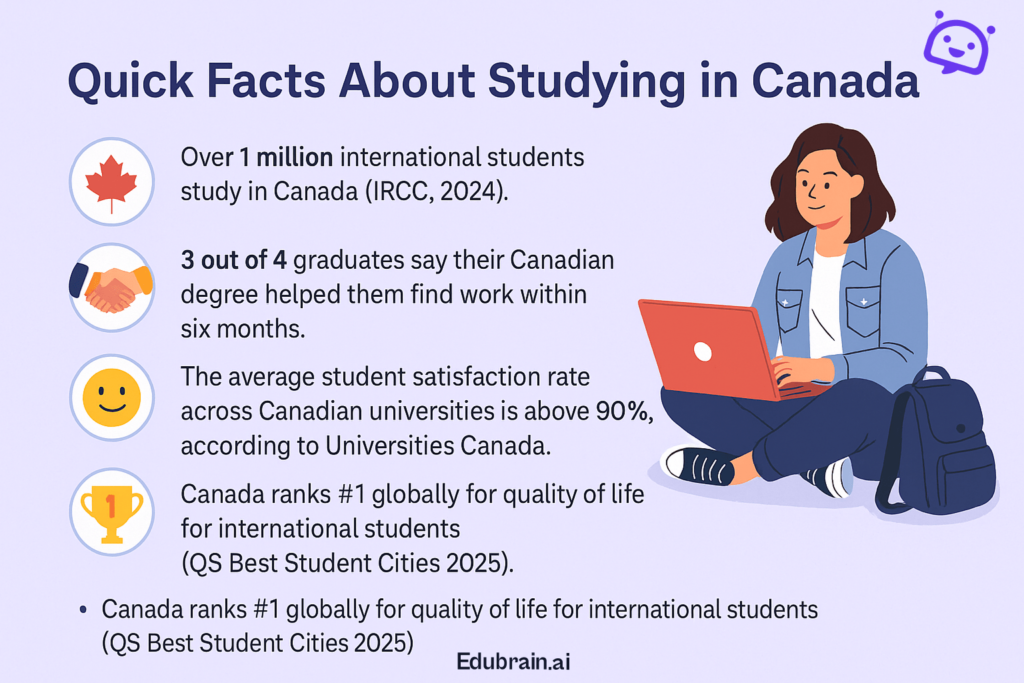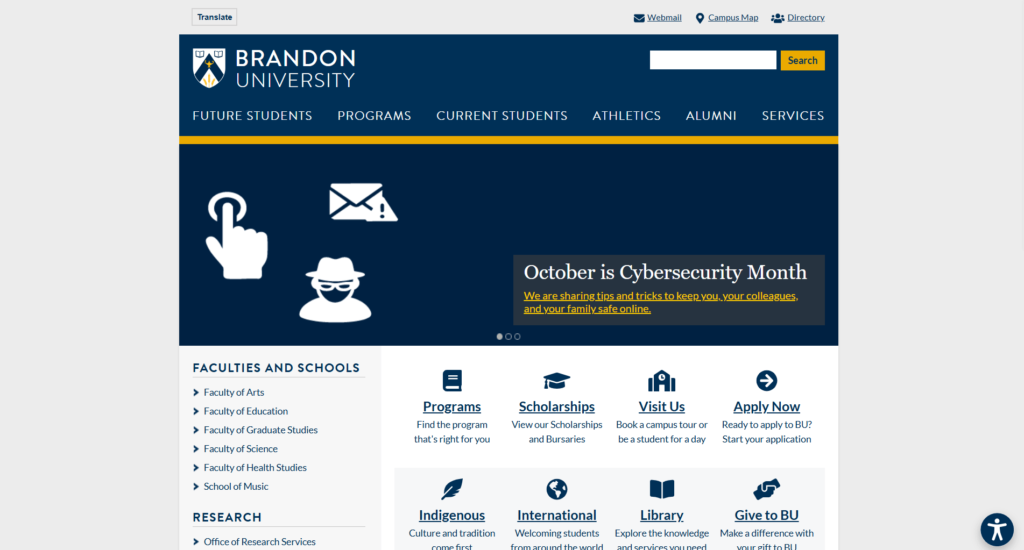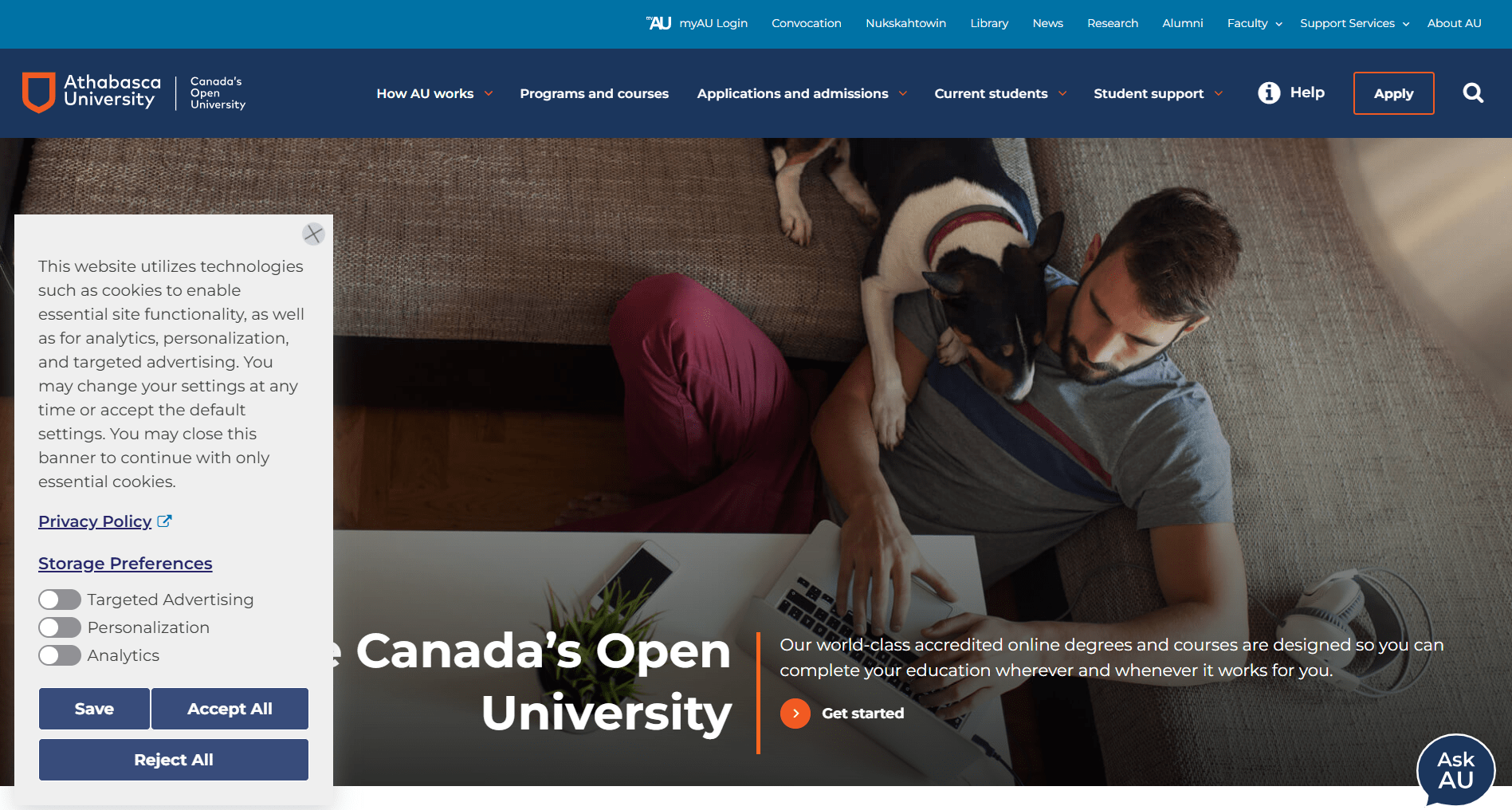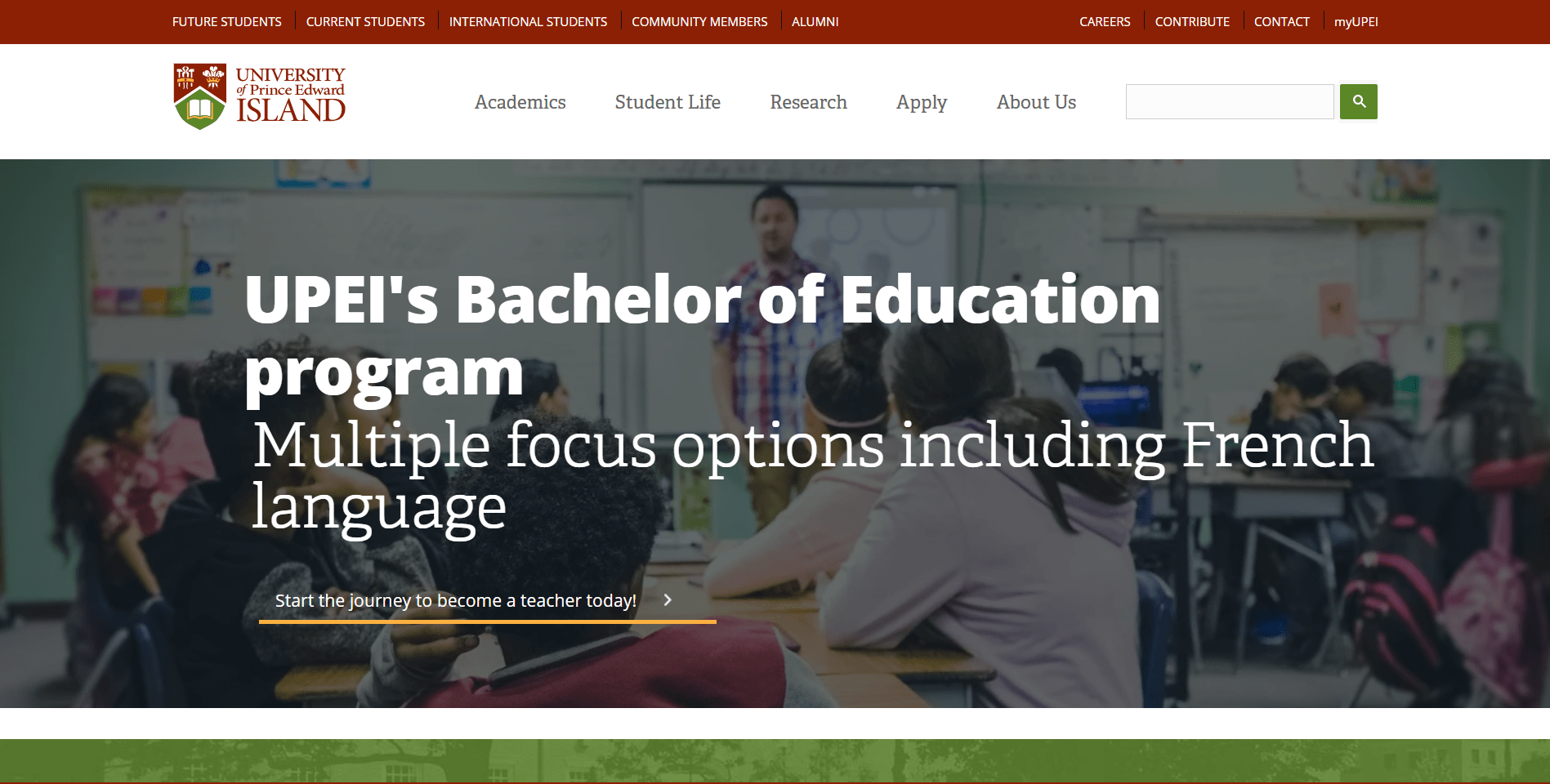Are you a high school student curious about chemistry? Many summer programs are available to help you explore this exciting...
Explore Cheap Universities in Canada for International Students
Canada is one of the best places for international students who want to study in a safe and welcoming country. Many people worldwide come here because the universities combine affordable tuition fees with high-quality education. You can find some of the cheapest university options in North America without giving up good academic standards. Whether you are interested in business, computer science, or health sciences, there are many choices to match your goals.
This article will help you understand everything you need to know about studying in Canada. You’ll see details about undergraduate and graduate programs, tuition fees, and how much it costs to live in major cities. If you want to get an excellent education at an affordable price, Canada has many opportunities waiting for you.
Table of Content
ToggleWhy So Many Students Choose Canada
Many international students choose Canada instead of the US or the UK. One reason is that Canadian universities have a strong record for good education. They offer programs that teach real skills for real jobs. You will find clear pathways to grow your knowledge if you are an international and domestic students. Here are some reasons why Canada stands out:

- High Academic Excellence: Universities in Canada maintain high standards and follow clear quality rules. This helps you trust that your degree will have value in many countries.
- Research-Intensive Courses: Public research universities often run big projects in health, technology, and social issues. You can work with professors who lead these projects. You can also use modern labs and tools.
- Safe and Multicultural Society: Canada is a country where people respect different cultures. Cities have many student groups, clubs, and community centers. This helps you meet people and feel part of a group.
- Wide Range of Programs: You can pick bachelor’s, master’s, and doctorate programs in business, computer science, social sciences, or health sciences.
Canada also has many tools to help you succeed. Universities offer clear support services, language help, and guides for daily life. You can use online resources to make studying simpler. One useful option is the EduBrain answer generator, which helps you find clear answers and ideas for your courses. Canada is a strong choice if you want a country with trusted universities providing high quality education, firm support, and good chances to build your future.
Tuition and Living Costs for International Students
The cost of studying in Canada depends on your program and location.
Tuition fees for undergraduate programs range from $7,000 to $25,000 each year. Public universities often have lower fees for the arts or social sciences. Programs in business, engineering, or computer science cost more. Graduate programs cost between $4,000 and $20,000 per year. Memorial University and Brandon University list some of the lowest fees for master’s degrees. A doctorate program costs about $5,000 to $25,000 per year. Doctorate students can receive funding or research support that helps cover fees and daily costs.
Moreover, your living expenses also depend on the city. In British Columbia, rent is higher in cities like Vancouver. Ontario has high costs in Toronto, but smaller towns are less expensive. Quebec has lower average expenses compared to other provinces. Monthly costs for an international student in a large city look like this:
- Student housing: $800–$1,500
- Food: $300–$600
- Transport: $100–$150
- Textbooks and supplies: $50–$200
- Health insurance: $70–$100
In most provinces, health insurance is a requirement. Students must show proof of coverage before classes start. This insurance covers doctor visits, hospital care, and medicine, which is crucial for international students. However, some universities offer help with housing, meal plans, and used books. Students also use part-time work on campus to pay for daily needs.
Top Affordable Universities in Canada
Canada has many universities where tuition fees are low compared to other countries. These public institutions welcome international students and domestic students. You can pick academic programs that do not cost too much. You can study business, health, computer, or social sciences. Many students find a program that fits their goals and budget.
This section shows some of the most affordable universities in Canada. Each school has programs, research opportunities, and support that help you finish your degree. You can read about each university’s offers and see which matches your plans.
Memorial University of Newfoundland

Memorial University is in St. John’s. This school has some of the lowest tuition in Canada. Many students pick it for health sciences, social sciences, and business administration. You can also take applied computer science, engineering, and marine studies. The university has research opportunities in health, the environment, and technology.
Students can join research teams and get experience in labs. Tuition for most graduate programs starts at $4,000 per year. Memorial has student housing with meal plans and shared rooms. International students can use services for housing help, language support, and study advice. The school offers sessions about work permits and visa rules. You can join clubs, sports teams, or cultural groups.
Brandon University

Brandon University is a public research university located in Manitoba. It has low tuition for undergraduate and graduate programs. You can study social sciences, science, music, and education. The school focuses on smaller class sizes, so you can talk to teachers often.
Students pay about $7,000 per year for tuition. Many live in campus housing or rent nearby. Meal plans are offered for easy food access. Manitoba international students get help with health plans, work permits, and study plans. The campus has a library, labs, and music spaces. Students can work part-time on campus in offices, labs, or food services to help with costs.
University of Northern British Columbia

The University of Northern British Columbia is in Prince George. Tuition is $5,000 to $10,000 per year for most programs. You can choose from degree programs in business administration, computer science, social sciences, or health fields.
The school offers undergraduate and graduate programs with clear course guides. International students receive help with housing, insurance, and visa documents. The campus has labs, a library, and areas for student events. Students can join research teams or community projects. Many students choose this school for its affordable education and support with study permits.
Athabasca University (Online)

Athabasca University offers online degrees. Some courses are tuition-free programs in specific fields, and other programs cost less than at many schools in Canada. Students can finish classes from home. You can study while working or caring for your family. The school has academic assistance through phone, email, and online chat. Programs include bachelor’s degrees, master’s degrees, and graduate certificates in business, health, and technology. Athabasca has advisors who help you plan each course step.
Concordia University

Concordia University is in Montreal. It offers programs for international undergraduates and postgraduate programs in business, arts, and engineering. Tuition costs vary by program but stay lower than in many large cities. Students can study in English or French. Concordia offers support with visas, housing, and health insurance. The campus has a library, labs, and spaces for student groups.
Students can join over 200 clubs, sports teams, and cultural groups. The university also has job services that help you find part-time work. Many students see Concordia as one of the affordable universities in Canada.
Other Notable Institutions

The University of Prince Edward Island offers nursing, science, and education programs with tuition starting at $7,000 per year. Students can live on campus or rent nearby, and there is support for health plans and work permits. In Alberta, some schools have tuition under $10,000 per year for agriculture, business, and health programs. Many universities in smaller cities keep fees below the national average to make studies more affordable. Across Canada, students can get help with housing, study permits, and part-time work. They also use writing centers, language labs, and online tools like EduBrain and Grammarly to find answers, build skills, and stay on track with their studies.
Scholarships, Funding, and Financial Aid
Many students use different ways to pay tuition and living costs in Canada. The Ontario Graduate Scholarship is one option. This funding supports students in master’s and doctorate programs at public universities in Ontario. You apply through your school; the awards depend on your marks and study plans. Most universities also have bursaries and grants. A bursary depends on your income and not only on your grades. Some bursaries cover part of tuition or help with rent, food, and books. Students from other countries can check if their government offers grants for studying abroad. These funds can pay tuition or give monthly payments.
International students can work up to 20 hours each week during classes and full-time during breaks. Many work in libraries, cafes, or offices to save money and build work experience. Buying used books, sharing a flat, and cooking meals can lower costs. Online tools such as the EduBrain chemistry solver help with study questions. This can save time if you want to work more hours. You can cover your costs and finish your program with planning and the right support.
How to Apply in Canada for International Students
You must follow clear steps to apply to a public university in Canada. However, each school has its process. But starting early allows you more time to prepare everything you need. Here is what you need to do:
- Collect your documents: You will require your previous study transcripts. These have to be copies written in English or French. Some universities will request grades from the past 2 or 3 years.
- Show your language skills: Most schools require IELTS or TOEFL scores to prove you can study in English or French. Some programs ask for higher scores, so check the details for each course.
- Prepare proof of funds: You must show enough money to pay tuition and living costs. A bank statement or a letter from a sponsor is common. Most schools expect proof of at least $10,000 to cover daily expenses.
- Get health insurance: Some provinces offer public health plans. Others ask you to buy private insurance before classes begin. This insurance covers doctor visits, hospital care, and prescriptions.
- Fill out the application: You select your program, upload your documents, and pay the fee. Many schools also ask for a short letter about why you want to study in Canada. You can include reference letters from teachers or employers.
If you studied in another country, you can request to transfer credits. International students transfer credits by sending course lists, transcripts, and sometimes detailed course descriptions. The university will check if your past classes match their requirements. This can save you time and money.
Life as an International Student
Life in Canada can be exciting, but there are many new things to get used to. Universities offer cultural integration programs to help you get settled. These programs provide workshops, events, and support for students new to Canada. International student groups organize trips, study sessions, and social activities, providing a welcoming environment that helps you feel at home. However, if you find studying difficult, you can use the AI flashcard maker, a quick way to review and remember important information, saving time and allowing you to focus more on your new life.
When it comes to living, you have several options. Most learners prefer on-campus accommodations that, in most cases, come with food. Others rent shared apartments to save cash or homestay with families in this area. Specifications concerning rules and prices accompany choices, which explains why comparing prices is quite helpful. Wisely arranging your time at school and everyday life allows you to meet the challenges of studying and spend time in Canada.
Conclusion
Canada is a great option for students wanting an affordable, high-quality education. Many universities offer competitive tuition fees while maintaining strong academic standards. Whether you are looking for affordable undergraduate programs or cheap master’s degrees, Canada has a wide range of options that can fit your budget.
The country provides a welcoming environment for international students, with plenty of support to help you succeed. From cultural integration programs to housing options, Canada makes adjusting and focusing on your studies easier. If you are ready to study abroad, start your application process early. With the right preparation, you can find a program that suits your goals and confidently begin your educational journey.
Explore Similar Topics
Artificial Intelligence is now the centre of technological evolution. From healthcare to the automotive industry to finance and education, AI...
College is becoming more expensive each year, and many students are taking on loans that will take decades to repay....

